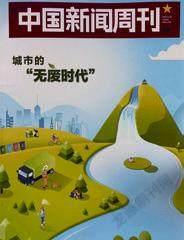NEW MINISTER OF CIVIL AFFAIRS
Tang Dengjie was appointed minister of civil affairs by the Standing Committee of the National People’s Congress, China’s top legislature, on February 28.
Tang has previously served as deputy head in charge of the National Development and Reform Commission.
Born in Shanghai in 1964, Tang traces his ancestry to Jianhu County in Jiangsu Province. He studied Mechanical Engineering at Tongji University. Following graduation, he worked as a technician and later held different managing posts at various automotive companies in Shanghai.
He has also served as governor of Fujian Province and director of the China National Space Administration, chief executive of state-owned China South Industries Group and head of the State Administration of Science, Technology and Industry for National Defense.
Study Times March 2
According to the Ministry of Agriculture and Rural Affairs, China had seen 18 consecutive years of bumper harvests in grain output by 2021.
Decades of hard work to upgrade the agricultural sector have ensured China’s food supply can meet demand, and today, the focus has shifted from sufficiency to quality. Yet food security is still vital to the survival and health of human beings, as well as the peace and development of society.
Despite its continuous grain harvests, China must confront the realities of its huge population, comparatively low freshwater resources and limited scale of organized farming. Then there’s the matter of industrialization and urbanization encroaching on arable land, plus the growing demand for animal feed grains as overall meat consumption is on the up. Currently, China still relies heavily on imported grain, which accounts for 24 percent of its total grain consumption.
Considering these negative factors, the whole country should always be on the alert for food shortages.
China News Weekly February 28

Solid wastes are besieging Chinese cities on the fast track toward industrialization. This kind of waste includes not only domestic garbage, but also industrial and agricultural trash as well as hazardous waste. Nationwide, the annual growth of solid waste stands at 10 billion tons. Dealt with through landfills and waste stacks, urban areas will suffer contractions and damage, while the air, soil and underground water are polluted, posing a threat to human health.
How to tackle the problem, then? One way is to promote a greener way of life and development. The key is to reduce the amount of solid waste, and then recycle as much as possible.
Waste reduction requires the scientific planning and upgrading of various industries in the process of production. It’s important to maximize the efficiency of the complete resource application through cross-industry and regional industrial chains.
This complex system of engineering petitions cooperation between the government, relevant industries and the public. The government focuses on designing and policy guidance, various industries develop effective ways of dealing with solid waste, while the public should always practice its social responsibility of environmental protection.
Nanfang Daily March 1
The catering industry witnesses falling footfall and mounting operating costs amid the COVID-19 pandemic, with small businesses taking a hard hit. More than ever, they must now rely on food delivery platforms to meet their sales quota, but the latter’s high commission rates are imposing an increasingly heavy burden.
To lend the battered catering businesses a helping hand, the Chinese Government has worked out detailed measures, including how to cut platform commissions, in a bid to provide some relief.
The catering industry absorbs a large amount of the labor force, playing a special role in stabilizing and stimulating the country’s economy. Though delivery platforms also face difficulties of their own, they have more leeway to recover and prosper than their small brick-and-mortar counterparts. As tech giants, they are obliged to shoulder more social responsibilities. Higher consumption levels will eventually benefit both catering businesses and platforms.
Meanwhile, individual entities should also try to explore innovative ways of expanding their business. A smoother relationship between small businesses and big platforms based on the market mechanism will help both sides tide over current strains.
Wang Xiqin was recently appointed president of Tsinghua University, while its former president, Qiu Yong, has been named its Party chief, the Ministry of Education said on February 25.
Wang got his bachelor’s degree at Tsinghua in 1991. After graduating with a doctorate in Electronic Engineering in 1996, he took up a teaching post at the university. Later, he served in different posts, including dean of the Department of Electronic Engineering, deputy dean of the School of Information Science and Technology, director of the Personnel Department and the Human Resources Development Office, assistant to the president and executive vice president.
Tsinghua is a major public research university in Beijing. Since its establishment in 1911, it has produced many prominent figures in science, engineering, politics, business, academia and culture.
“I have great confidence that 50 years from now, when people assemble again to reflect on Chinese and American relations, they will look back on a century of cooperation and understanding and settlement of conflicts.”
Dr. Henry Kissinger, famous U.S. diplomat, in his video speech during a ceremony commemorating the 50th anniversary of the Shanghai Communiqué on February 28
“Honored to be No.43 of the#Lakers! 2022 marks the 43rd anniversary of China-U.S. diplomatic relations and the first#NBA team’s visit to China.”
Qin Gang, China’s Ambassador to the U.S., in a tweet after meeting with U.S. National Basketball Association representatives during a Los Angeles Lakers game on February 27
“The so-called British National Overseas passport is not recognized by China, and Britain should stop meddling in Hong Kong affairs in any form… No attempt to destabilize Hong Kong or damage its prosperity and stability will ever succeed.”
Wang Wenbin, spokesperson for the Foreign Ministry, at a news briefing on February 25
“We have a responsibility to deliver solutions to the crises of climate change, pollution and biodiversity loss.”
Inger Andersen, Executive Director of the UN Environment Program, at the Fifth Session of the UN Environment Assembly on February 28

